At a recent team dinner, TechCabal’s editor-in-chief, Fu’ad Lawal, laughed at something ridiculous I did and declared I should be making skits. He was half-joking, but he is not wrong.
A skit is a short, humorous performance that often parodies a common situation. When I say “skit” in this article, I’m not referring to the crude comedic slop often found on social media. I mean short-form, viral video content—cinematic or scrappy—designed to capture attention, which has become a real moat in modern business.
In today’s crowded market, a great product isn’t enough; the ability to consistently capture and hold an audience’s attention is increasingly becoming a highly valuable business asset.
By definition, a startup is a business looking for a repeatable model, which means every startup is by default in the middle of a pivot. This is especially true for early-stage companies, now that artificial intelligence is lowering the barriers to creating products. So much is transient, but businesses can increase their winning chances by taking a place in the minds of potential users through viral videos.
Everyone who matters to your business—investors, top employees, customers, and even regulators—is a human being who spends a significant amount of time on the internet, laughing at memes and watching viral videos. What better place to connect with them than on the platforms and in the format they constantly engage with?
The future belongs to those who can tell thumb-stopping stories at the speed of the internet. Companies and creators who thrive build spectacle, connection, and viral narrative, not just products.
That’s why the insight from my boss hit home. I should be a skit maker. And today, so should startup employees, founders, and investors. We should all be skit makers, learning to create content that captures attention and emotionally connects with people to build lasting connections.
Next Wave continues after this ad.
Some of us are already skitmakers
Recently, Femi Otedola, a Nigerian billionaire, performed an amusing TikTok-style dance routine with his daughter to promote his new book.
Social media pages of traditional banks, like United Bank of Africa (UBA), are littered with videos where employees copy viral TikTok trends or act out entertaining scripts to increase awareness for the business.
Business advertising in the tech ecosystem also adapts these skit styles, from partnerships with professional skit-makers like Layi Wasabi to scripting and acting their skits with staff and executives.
While virality was once a lucky accident, it’s now a deliberate strategy based on constant iteration and audience feedback. Unburdened by outdated ideas of professionalism, Gen Z founders and employees use meme culture, inside jokes, and anti-ads—content that feels too candid to be corporate to humanise their brands and generate FOMO (fear of missing out). This approach creates an engagement that traditional methods can no longer deliver.
When Chicken Republic, Nigeria’s leading restaurant chain, returned to Glovo after a year of being off the food delivery app, Glovo announced it through playful chat-style billboards and influencer posts instead of solely press releases.
This sort of virality engineering, which mimics existing internet culture, is the future of storytelling.
Stories sell, and skits are how we should be telling them.
If your conservative African sensibilities make this hard to swallow, perhaps you’ll believe the experts at Andreessen Horowitz (a16z), one of Silicon Valley’s leading VC firms.
According to an August newsletter from Speedrun, an a16z accelerator program, there are a few universal truths for startups, but “lately it seems almost everybody agrees on one thing: You’ve gotta make a killer .”
In a June podcast with a16z General Partners Erik Torenberg and Bryan Kim, Cluely’s co-founder explained that founders who “ride the algorithm” by creating viral videos for product launches or team announcements can achieve significant results. The rewards for going viral are tangible: waitlists fill overnight, and investors clamour for introductions. For example, the AI startup Cluely raised $15 million in 10 weeks after launching with a series of satirical viral videos about their startup. While their growth metrics, number of users and revenue were crucial, the visibility from videos played a crucial role in them landing prominent investors and paying clients.
At this point, you might think, “That’s America; that’s not how things work in Africa.” However, the only nuance is “what” stories we tell, not “how” we tell them. The medium for storytelling has evolved in Africa in the same way it has in the West.
Today, Africa, like Western countries, is overwhelmingly mobile-first. As of 2024, over 90% of the continent’s internet traffic comes from smartphones, and video consumption is exploding on platforms like TikTok, YouTube, and Instagram.
These platforms have a communication shift towards short-form video driven by a fundamental human appetite for immediate, emotional connection. These videos condense narratives, cultural references, and brand values into seconds, making them highly shareable and effective at capturing fragmented attention spans. Data backs this trend: over 384 million Africans are on social media, and user-generated content (UGC)-based ads have four times the average click-through rate of branded content. Furthermore, 84% of consumers trust messaging that features real people, not just brands.
Embracing this new way of storytelling is not “un-African”—it’s a cheaper approach. Creating organic viral videos is a smarter investment than spending heavily on traditional advertisements with depreciating currency. This approach is not only more effective but also more accessible to entrepreneurs operating with limited capital.
The era of sanitised, scripted brand messaging is ending. Audiences now crave chaos, and wit—stories that feel risky, emotional, and participatory. They no longer want to consume content simply; they want to jump straight into cultural conversations and feel like they’re a part of your business’s story.
To stay top of mind with everyone who matters in your business, from potential customers to investors, you need to become a skitmaker. Think about this every time a video distracts a potential B2B client you’re having a casual lunch with. As our world shifts, the new rules of business engagements are changing.
The first principle is still intact: tell a good story. However, what has changed with the demographics is how. In the attention economy we are living in, one of the best ways is to become a skitmaker. May the best performances win!
Next Wave ends after this ad.
Ngozi Chukwu
Reporter, TechCabal
Thank you for reading this far. Feel free to email kenn[@]gmail.com with your thoughts about this edition of NextWave. Or just click reply to share your thoughts and feedback.
We’d love to hear from you
Psst! Down here!
Thanks for reading today’s Next Wave. Please share. Or subscribe if someone shared it to you here for free to get fresh perspectives on the progress of digital innovation in Africa every Sunday.
As always feel free to email a reply or response to this essay. I enjoy reading those emails a lot.
TC Daily newsletter is out daily (Mon – Fri) brief of all the technology and business stories you need to know. Get it in your inbox each weekday at 7 AM (WAT).
Follow TechCabal on Twitter, Instagram, Facebook, and LinkedIn to stay engaged in our real-time conversations on tech and innovation in Africa.







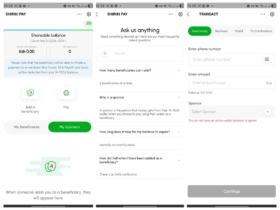


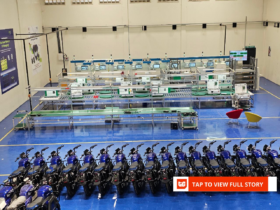


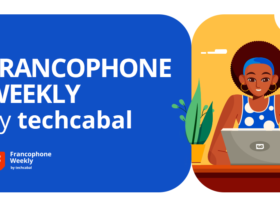

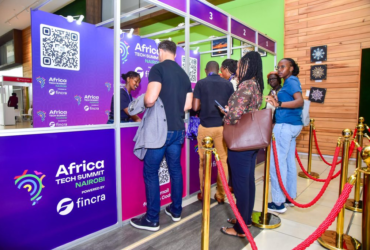
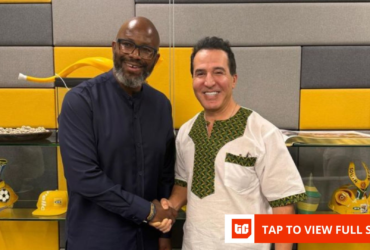
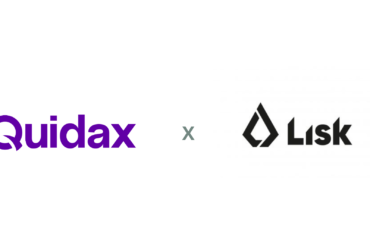


Leave a Reply